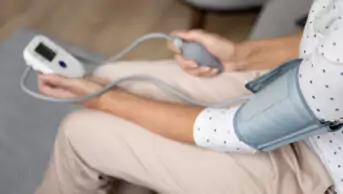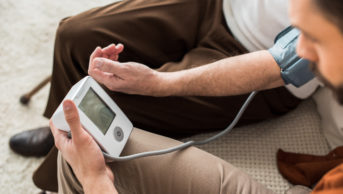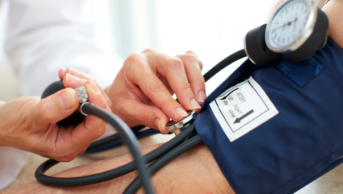
Shutterstock.com
If each pharmacist in England carried out just one blood pressure test per day, five days per week, an extra 750,000 hypertension cases could be identified each year, saving the NHS vast sums of money, according to the chairman of the National Pharmacy Association (NPA).
Speaking at the organisation’s annual conference in Hinckley, Leicestershire, last week, Ian Strachan said the role of community pharmacy was vital in improving patient wellbeing and relieving NHS pressures.
But he warned that NHS England’s “regressive and unilateral” policy was blocking the profession’s ability to play a central role in delivering care.
He said: “There are 8 million people in England registered with hypertension, with 1.3 million of those not being managed to target, and a further 6 million who have never even been diagnosed.
“And there are approximately 11,600 community pharmacies in England. If each did one blood pressure test five days a week, that would total 3 million screenings a year. The rate of hypertension detection is 25%, which means we could identify a further 750,000 people a year and reduce stroke-related hospital admissions by between 30 to 40%.”
According to figures from Public Health England, high blood pressure costs the NHS an estimated £2bn every year, with stroke being the biggest cause of death.
Strachan said that by reducing admissions, which for a stroke patient can lead to an average 10-day stay in hospital at a cost of between £7,500 and £10,000 per patient, the NHS could save hundreds of thousands of pounds.
“The reason pharmacy is the right choice is because we are the only part of the system that currently has the access and the capacity to do more,” said Strachan.
NHS England’s ‘Five year forward view’
published in 2014 recognised the potential for pharmacy, highlighting that there should be far greater use of pharmacists, as part of more integrated local care models, in preventing illhealth and managing long-term conditions.
But Strachan accused NHS England of “missing a vital opportunity and eroding the status of community pharmacists by destroying their professional standing in communities”.
Concerns have been expressed about a fall in commissioning of pharmacies by local authorities. These are backed up by data released by the King’s Fund in July 2017, which predicted that services commissioned from community pharmacists were likely to face further cuts as local authorities continued to reduce spending across public health following central government cuts to their budgets.
Strachan pledged to continue the NPA’s positive lobbying strategy of demonstrating in a positive way how community pharmacy must be part of the solution.


